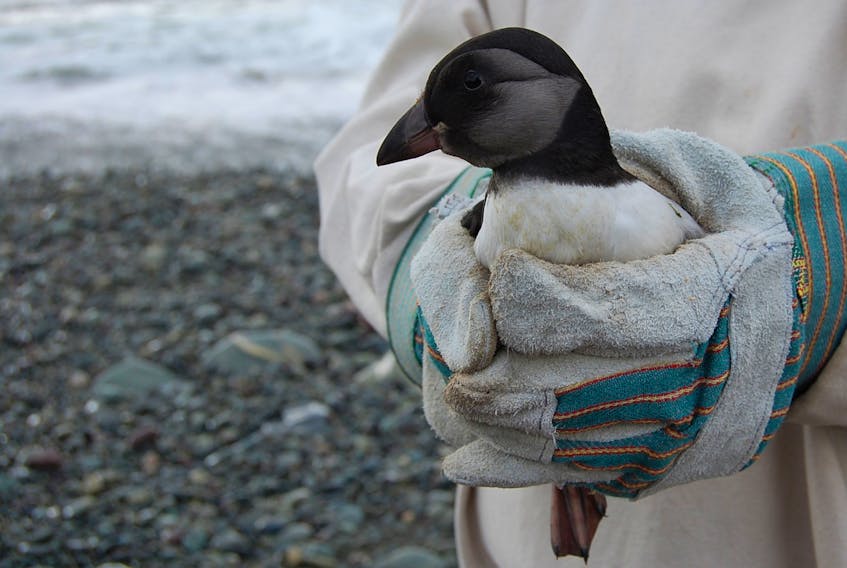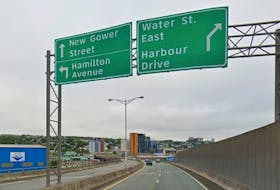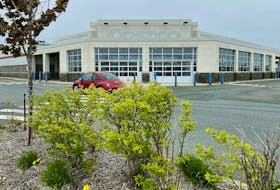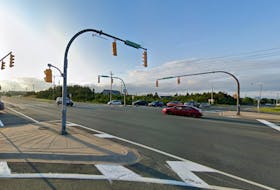For 14 years, Puffin and Petrel Patrol has rescued wayward pufflings – juvenile puffins – taken off course by artificial light in the Witless Bay area.
This year, the Canadian Parks and Wilderness Society – Newfoundland and Labrador Chapter (CPAWS-NL) is taking steps toward getting a dark sky designation for the area.
CPAWS-NL conservation co-ordinator Kathy Unger said the group does more than just rescue the birds – they’re also learning why the birds are becoming stranded in the first place.
“Nights when there’s no stars and moon, and it’s just all overcast and cloudy, there’s a lot of light scatter from the community – that’s when you’re getting puffins dropping out of the sky almost, getting stranded on land. So, more and more the puffin patrol program has been moving towards education about light pollution,” Unger said.
People in the community have started dimming lights, drawing their curtains, and what Unger said is most effective – turning their lights off altogether during fledging season.
Puffins spend autumn and winter on the open ocean and return to the coast in late spring to nest. A single egg is laid and after about six weeks it’s fully fledged and makes its way at night to sea.
With increasing light pollution, pufflings are confusing street lights, headlights, and other artificial light with the moon and stars, which they use to navigate out to sea.
CPAWS-NL’s Puffin and Petrel Patrol spends nights in August and September looking for these lost birds and releasing them back in the right direction the next day.
This season’s patrol kicked off Wednesday evening, but Unger said this year they’re trying to “move even further” – speaking with the St. John’s chapter of the Royal Astronomical Society of Canada (RASC) about how they can get a dark sky designation for the Witless Bay area.
“Keeping the area dark at least for the duration of the seabird fledging season,” said Unger.
She said a simple first step in that direction is using sky quality meters to measure the brightness of the night sky. CPAWS-NL can use that information, paired with daily counts of stranded birds, to measure a correlation between the two.
She said the first measure will likely be taken on Monday – right now, the organization is getting trained in using the equipment.
“Ultimately, it would be amazing to have a formally recognized national, international designation as a dark sky community. It would be a commitment from the community members and the town council, but that realistically is going to take probably a lot of years and a lot of relationship-building. So, a lot of community members are already on board – they’ve already switched out their bulbs to more puffin-friendly light bulbs and light fixtures – but the next step is really to get to a point where we can be designated.”
Dave Newbury with RASC said getting everyone on board can be the most difficult part of the designation process.
“The easy part is taking the measurements with the meter, the hard part is getting engagement from the parties involved — businesses and people, towns and so on — to buy into and accept and make the commitment to do the changes they would need to make to light fixtures and lighting.”
Newbury said he hopes both CPAWS-NL and the Witless Bay area “will start looking more at preventing wayward bird migrations instead of relocating birds every year.”
Memorial University biologist and seabird specialist Bill Montevecchi said a dark sky designation for the area “could be huge.”
“We don’t look at light as a pollution, but in fact it is, particularly when we put it in environments and situations where it simply never existed in the natural world,” Montevecchi said.
Getting that designation for the community “can definitely make a difference” for the puffins, he said.
“The other difference that it makes is the awareness of people to accommodate wildlife. I mean, that’s what we have such a hard time doing – simply accommodating wildlife rather than simply imposing and imposing and just figuring it will just go its own way and everything will be fine. Well, it’s not true. Our footprint’s just too big, just too overwhelming, and if we don’t accommodate, then we’re destroying wildlife habitat.”
Twitter: @juanitamercer_









